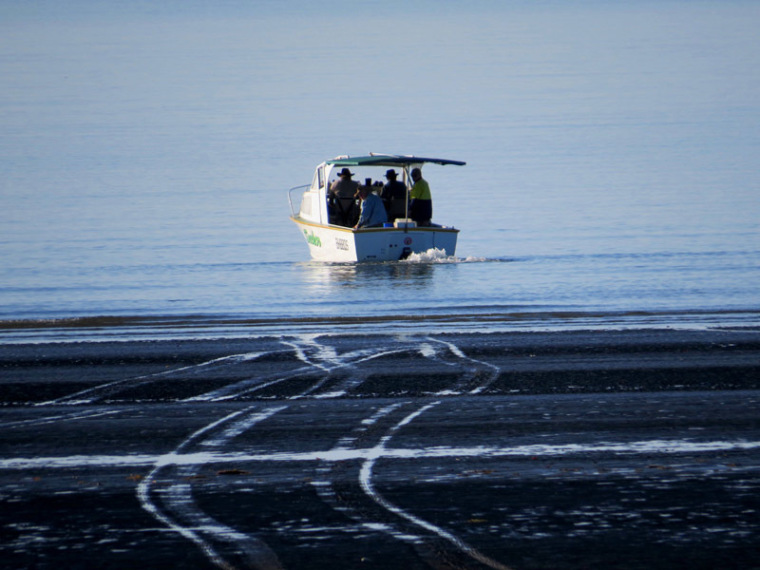
Mid-year is a good reason to consider relocating to rural Australia. Many Australians each and every year after a holiday return to their city lives with the traffic chaos, people in your face 24/7, the pollution and the rest of it, and wonder why on earth they came back after their break.
Yesterday I discussed some of the issues, today another set of positives. One of these is because people of necessity have to do more for themselves if the tradesmen or similar facilities are not 'just a phone call away', so that kids learn to be more self-reliant and independent.
This is manifest in the way the community agencies provide everyone with hands-on involvement – there is simply no-one else to do it, everyone from teenagers upward has to take part if the community is to survive.
Whether that is with the SES, the Rural Fire Brigades, Church Youth Leadership Roles, the RSPCA, the Guiding and Scouting movements, there are so many options. The advantage in a small town is that the meetings or training is 'local' and close by, so that transport is not such an issue.
Also the parents and teenagers are often involved in the same community activities, together. in the cities that the such activities are not entertained by a majority of city youth.
Families and Community
This participatory culture is extended to the whole community being involved in the school, the hospital and welfare groups with their various fetes and community fund raisers, dances, town functions and business gatherings. The rural community is one place where the local Shire Councillor and Mayor may live next door to each other – or to you - and seemingly many more things get done.
Another example was Wilcannia a rural NSW town that saw its supermarket close which drew so much attention that city retires are moving in and setting up house and shop, such as a cafe come gallery. It’s bred new life into the town.
Rural and regional Australia is a great place for families and any migrant would be well pleased to have the opportunity to live within such a close-knit community. As they become welcomed into the community, they will bring a fresh view of other cultures, other foods, and perhaps better ways of organising community events and the whole nation can benefit as a mutual understanding develops.
These sentiments are reported 'first hand' - ''One of the best things'', said a mother of three from Fiji, who now lives in Cooma, was that her circle of friends included a mix of Australian-born and people from many countries.
''There's no way we're moving,'' she said. ''A small country town is the best place. It's just perfect for us.''
Rural church life provides so many young Christians their chance at leading youth groups and preaching at youth services and similar roles which provide them significant training in self-confidence and self-reliance in every aspect of their lives.
Now there are a growing number of professionals whose families live in rural Australia, while the husband and father commute to Sydney or Melbourne.
Other issues
The fly-in and fly-out recent dramas in Australia's mining centres continues to raise its ugly head in the face of continuing protests by rural and regional communities. I wrote about this dilemma which gained significant attention, titled: The Mining Industry is disparate to accommodate its work population (that includes families).
In recent years the Government has put forward proposals to require migrants to move to regional and rural Australia.
This is nothing new. Over the past century, there have been many incentives for migrants to take up life in the country, the most well-known being the construction of the Snowy Mountains hydroelectricity scheme.
In 2010 there were 22,821 migrants associated with 'bush' employment live and work in regional and rural Australia (we're waiting on the 2016 census outcomes). In these cases, the move was voluntary because that was where the work was, and these migrants were pleased to have the contract.
Another report indicated that many who have moved to regional areas have adapted well, both partners often find work, and once they get used to the lifestyle they make new friends and find that country life is a very good alternative, even if they do not have all the 'bells and whistles' they are used to in the city.
I for one highly recommend anyone relocating to a rural or regional centre. It makes a bold move especially when there is no job (income) planned, but this is the spice of life.
We now live in Tweed Heads, which is the southern tip over the border from the Gold Coast. Many of the old timers tell me that Tweed Heads is still a big country town. I seem to think it is too. The Laguna Quays Respite cottage for missions on the Whitsundays is such a treat.

Dr Mark Tronson - a 4 min video
Chairman – Well-Being Australia
Baptist Minister 45 years
- 1984 - Australian cricket team chaplain 17 years (Ret)
- 2001 - Life After Cricket (18 years Ret)
- 2009 - Olympic Ministry Medal – presented by Carl Lewis
- 2019 - The Gutenberg - (ARPA Christian Media premier award)
Gutenberg video - 2min 14sec
Married to Delma for 45 years with 4 children and 6 grand children